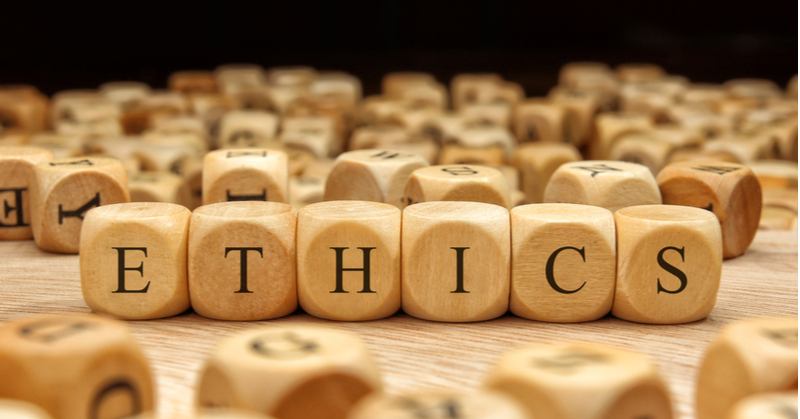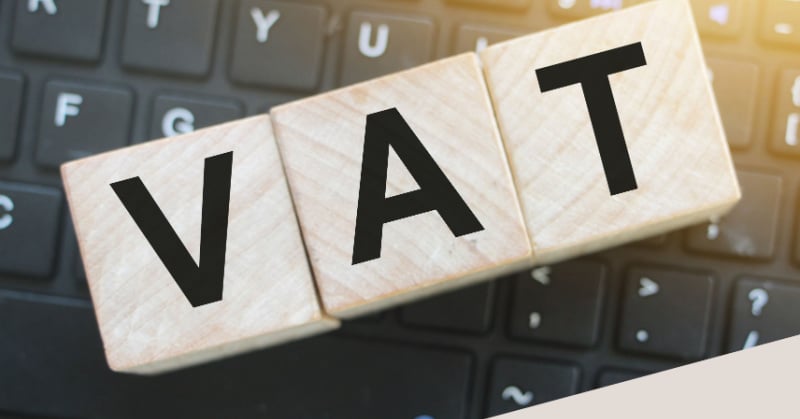Should you be reading this article to uncover definitive ethics guardrails for yourself and your bookkeeping or accounting practice, please allow me to apologize from the outset.
Rather than providing pre-defined guardrails for you to adopt, the goal of this article is to stimulate your thoughts surrounding ethics. I encourage you to create a "safe" circle of team members and/or peers where you would feel comfortable and chat openly through these challenging matters.
Definitions of Ethics
Let’s initiate our review by seeking out some definitions.
From Encyclopedia Britannica – “Ethics, the discipline concerned with what is morally good and bad and morally right and wrong. The term is also applied to any system or theory of moral values or principles … If we choose happiness, will it be our own or the happiness of all … is it right to be dishonest in a good cause?”
From Wikipedia – “Ethics or moral philosophy is a branch of philosophy that ‘involves systemizing, defending, and recommending concepts of right and wrong behavior’"
From Oxford Languages (Dictionary) – “Moral principles that govern a person’s behavior or the conducting of an activity”
All three of these are excellent definitions, as well as thought-provoking.
Personally, I like to keep morality out of the equation as I find our morals tend to be a product of the environment to which we are first and continue to be exposed. "We are a product of our own environment," and from that environment, we garner our moral compass. Instead, I recommend that we consider what is FAIR rather than what is MORAL to aid us in making ethical decisions.
Where definitions are concerned, I always prefer the shorter the better. So, I will pinch from the Oxford definition and modify it a wee bit to my liking.
Here is my "Ethics Statement" - Fair principles that govern our behavior while conducting activities on behalf of our clients. There, that is personal to me and I (and my company) can aspire to that statement, especially if carried on our website.
I encourage all of you to perform this same exercise alone or in conjunction with your team. Find your north star on this topic. Defining ethics for yourself individually and for your company as a whole will impact which clients you keep and which clients you seek.
In fact, I argue that finding the right clients is awfully similar to finding the right spouse. Sure instant kismet is always titillating, but shared values are the foundation for the long haul. That and the fact that my wife of 35 years is so unbelievably patient! Opposites can definitely attract if we are talking about introverts and extroverts; or sports lovers versus art lovers; but without both having the same guiding principles, you won’t be steering towards the same goals or direction.
Ultimately, I need to respect my clients, and I need my clients to respect me. This, for me, is the underlying Ethics Agreement that is in service of the Ethics Statement I set out for myself (and my clients) above.
Round 1 - Discussion Questions to Guide Your Definition of Ethics
I recommend you gather a group of your team members and/or peers and chat about these questions.
Question 1: Your client is a landscaper, and wants to know if it is ok to accept cash?
On the surface, this seems to be a fairly easy question. But when faced with seemingly straightforward questions like this, you should always endeavor to gain more information. So, answer this question with other questions.
- Does the client not wish to accept checks or credit cards?
- Does the client still plan to deposit the cash into their business account and remove appropriate taxes?
- Are you asking me how to deal with the client's customers who insist on paying cash?
Is it okay to respond to your client, "Hey, I am not your spiritual advisor. If you are dealing in cash, I just don’t want to know or hear about it. I am not involved."
Do you, perhaps, even accept cash yourself?
Question 2: What if your landscaper client then says, "Listen. If I don’t start accepting cash in some cases, I just won’t get the business and my kids will starve. Help me out here!"
How does this explanation of accepting cash "under the table" change your ethics guardrails? Does this soften your ethics or principles in this case?
Question 3: What if this landscaper client is actually your relative?
Does your assessment change and do your ethics guardrails shift?
Question 4: Consider that instead of being an external bookkeeper or accountant for this landscaping client, you are actually an employee or controller of the business. How do you react if the owner brings cash into the office and asks you to keep it in the safe without invoices supporting the cash income?
How do you respond if your own income is fully dependent on this job?
Question 5: Let's assume you want to quit, but you need this job to pay rent and feed your kids.
Why should you have to quit and be hurt when you are not doing anything wrong? Heck, you cannot even qualify for Unemployment if you quit!
Mid-Point Commentary on Shifting Ethics
There will still be more questions to guide your conversation about your ethical guidelines for you and your practice. However, here are a few additional considerations.
Questions of ethics are not so easy when there are real (and harmful) consequences to you when you adhere to your principles. For some, the result of increasingly harmful consequences may lead to the development of softer guiding principles, in an effort to eliminate or at least reduce conflicts.
Ultimately, that is a question you need to ask yourself.
For me, I go back to a statement my mom said frequently as I was growing up, "You are who your friends are." As an adult, I have extended her wise advice to two statements. "You are who your employers are," and, "You are who your clients are."
At my firm, we always get concerned when a client bounces checks to anyone, when they are delinquent on reporting and paying their taxes, and how they treat their employees. We see this as the beginning of their divergence from our collective path of principles.
Round Two - Discussion Questions to Guide Your Definition of Ethics
Ok, the first group of questions may not have been too challenging.
Now let's move on to an example where your client (or employer) should be registering to collect and remit California Sales Tax. They are based in Boston but have a sales rep in San Diego, and they meet the NEXUS requirement for charging CA sales tax on products they ship there.
Question 1: The owner says, I don’t want to Register because it will hurt my sales in that state if I have to charge more. How do you respond?
Question 2: Interestingly, it is NOT criminal to fail to register to collect State Sales Tax. Does this tidbit of info change your position?
Question 3: What if the owner says we will charge and collect the state sales tax and will register in the future to remit what we have collected to the state?
Warning! This is criminal, and you should advise the owner of such fact, even if they believe they have every intention to remit the taxes collected in the future. Do not get caught making such an egregious error. Breaking a criminal code can never be moral or principled.
Question 4: What if the owner tells you they will register to collect and remit sales tax in California once the cost of compliance becomes lower than the penalty that will be assessed for failing to comply?
I liken this question to speeding. We know speeding is wrong, but we are willing to take the risk as the penalty for non-compliance is a nominal ticket.
So, where do you land on this example? Do your clients land on the same line as you?
Conclusion
Once again, I encourage you to seek out safe circles to chat openly and honestly about where you land given these examples and others that you or members of your group have faced. This will assist you in determining where your guardrails should be placed.
I wish you the best of luck on your journeys!
.png?width=150&height=63&name=TWRlogo-regmark_blueblack%20(1).png)
.png)















Do you have questions about this article? Email us and let us know > info@woodard.com
Comments: